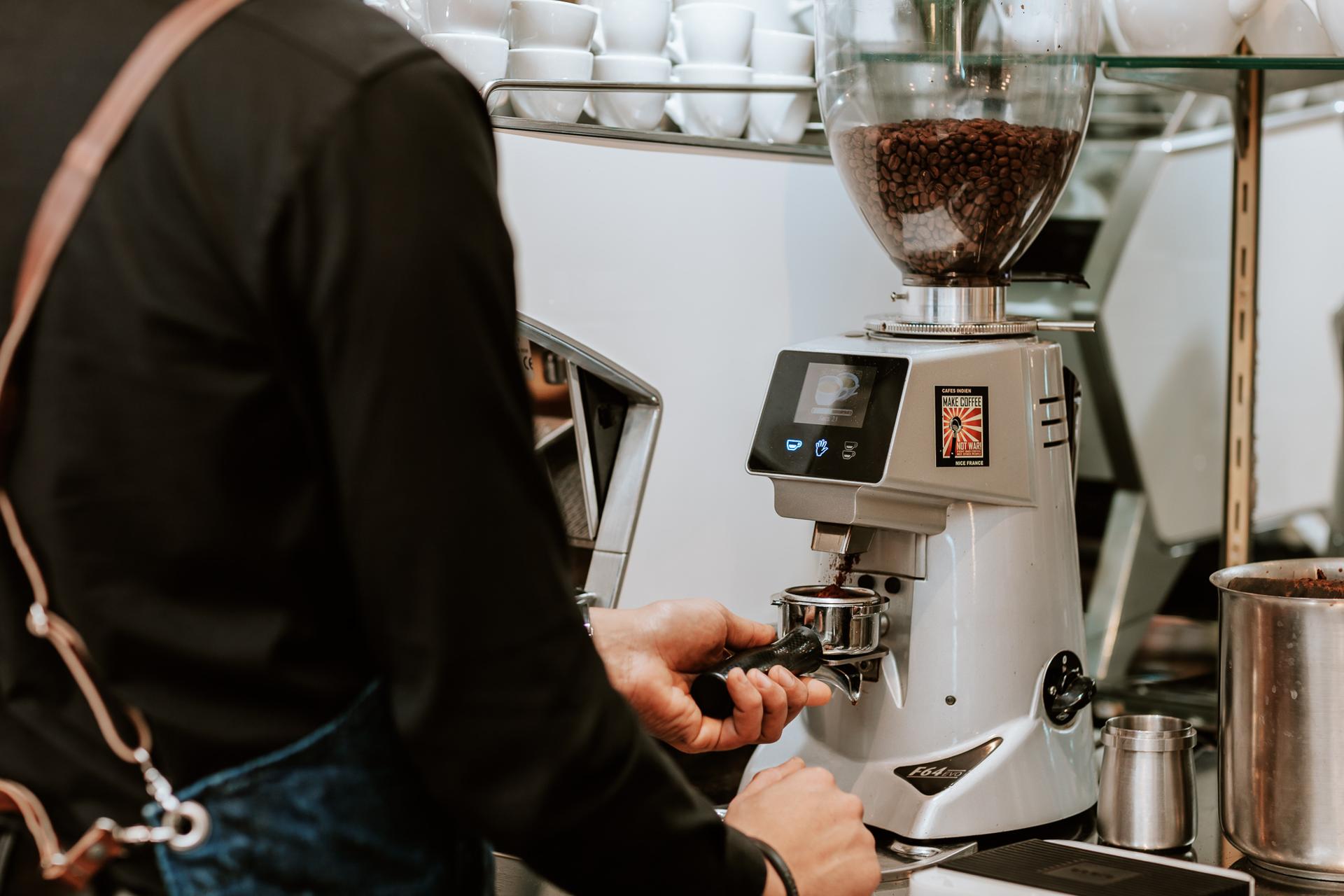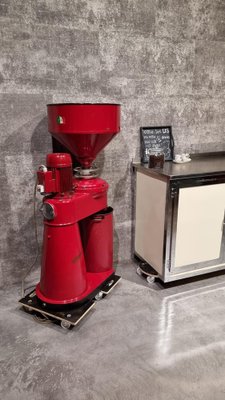How to Choose the Perfect Industrial Coffee Grinder for Your Business
Selecting the optimal commercial coffee mill for your company is a multifaceted choice that needs cautious consideration of numerous critical factors. In addition, recognizing the various types of mills offered can dramatically influence your functional effectiveness.
Assess Your Grinding Requirements
When picking an industrial coffee grinder, one need to first analyze their grinding needs to ensure optimal efficiency and consistency. This preliminary evaluation involves comprehending the quantity of coffee to be refined daily, as well as the wanted work dimension for numerous brewing approaches. A high-capacity grinder may be necessary for organizations offering huge quantities of coffee, while smaller sized procedures may discover a more small version enough.
Furthermore, it is necessary to take into consideration the sorts of coffee beans being made use of, as different beans may need specific grinding techniques to accomplish the very best flavor profile. As an example, oily beans might demand a grinder made to handle such characteristics without overheating or clumping.
Another critical element is the required work uniformity. Specialty coffee companies commonly demand accurate grind dimensions to improve removal and flavor, making it essential to choose a grinder that can deliver uniform outcomes. Examining the offered room and electric demands will aid in choosing a grinder that fits seamlessly right into your operational operations. By completely evaluating these elements, organizations can make enlightened choices that align with their coffee grinding demands, ultimately causing a superior product and completely satisfied customers.
Understand Grinder Types
Comprehending the numerous kinds of commercial coffee mills is crucial for making an informed choice that satisfies certain functional demands. There are mostly 2 groups of grinders: blade grinders and burr grinders.
Blade grinders utilize spinning blades to slice the coffee beans, leading to an irregular work dimension - Industrial Coffee Grinder. While they might be a lot more budget-friendly, they are usually not suitable for commercial applications where accuracy is essential
On the other hand, burr grinders offer a more uniform work by squashing the beans in between two surfaces. They can be further classified right into flat burr and cone-shaped burr grinders. Apartment burr mills use a constant grind size and are generally favored for coffee prep work, while cone-shaped burr grinders are functional and can take care of a variety of brew methods, from coffee to French press.
When choosing a grinder, consider the details requirements of your company, including preferred work consistency, production quantity, and the sorts of coffee beverages you intend to provide - Industrial Coffee Grinder. Each grinder kind has its restrictions and advantages, so recognizing these subtleties enables educated decision-making that lines up with functional goals
Evaluate Work Dimension Consistency
Attaining grind dimension uniformity is vital for producing high-quality coffee, as variants in particle size can considerably influence extraction and taste. When picking an industrial coffee mill, it is vital to assess just how well the device keeps harmony in work size across various batches. Irregular grind sizes can result in irregular extraction, leading to a cup that may taste overly bitter or weak.
To assess grind dimension consistency, think about grinders with functions such as adjustable grind setups and top quality burrs. Burr grinders, particularly, stand out in producing consistent particle sizes contrasted to blade mills. The material and shape of the burrs play an essential role, with stainless steel and ceramic choices offering resilience and precision.

Take Into Consideration Manufacturing Ability
In the busy globe of coffee manufacturing, taking into consideration manufacturing ability is paramount for businesses aiming to fulfill need without giving up top quality. The manufacturing ability of a commercial coffee mill directly influences a company's ability to satisfy orders efficiently, manage supply, and react to rising and fall market fads.
When examining manufacturing capability, it is necessary to assess the grinder's result price, normally determined in pounds per hour. This dimension ought to align with your service's predicted sales volume and growth targets. A coffee shop with a high turnover might need a grinder that can refine a number of hundred extra pounds daily, while a smaller sized operation could be enough with a reduced capability model.
In addition, think about the kind of coffee being refined. Different beans and blends might impact grinding rate and efficiency, necessitating a mill capable of handling varied production requirements. It's also worth considering the grinder's capability to maintain constant top quality under high outcome problems, as any variations can affect the last product.
Eventually, picking a grinder that matches your organization's production capability will certainly ensure you continue to be competitive and receptive to consumer expectations.

Budget Plan and Maintenance Aspects
When assessing the ideal commercial coffee grinder, maintenance and budget plan aspects play a substantial duty in the overall decision-making process,. A preliminary financial investment in a high-quality grinder can produce long-lasting advantages, yet it's essential to establish a clear budget that aligns with your company's functional requirements. Think about both the acquisition cost and prospective functional expenses, such as energy usage and replacement parts.
Maintenance is one more vital element that can affect your budget plan. Industrial coffee grinders require regular maintenance to ensure optimum efficiency and long life. Examine the maker's suggestions for maintenance, including cleaning timetables and parts substitute, as these will affect lasting functional expenses. try here Furthermore, consider the availability of solution and assistance, as trustworthy help can reduce downtime and repair work expenses.

Buying a grinder that is sturdy yet simple to maintain can conserve money with time. While lower-priced choices might be Bonuses appealing, they might incur higher maintenance costs and minimized efficiency. Inevitably, balancing first costs with long-lasting maintenance and operational efficiency will certainly direct you to the very best choice for your service's coffee grinding needs.
Final Thought
Selecting the perfect industrial coffee grinder necessitates an extensive examination of grinding requirements, mill kinds, grind size consistency, production capacity, and budgetary considerations. A well-chosen mill not just boosts the top quality of the coffee created however likewise contributes to the overall success and profitability of the venture.
Specialized coffee services commonly require precise grind sizes to enhance removal and taste, making it crucial to select a grinder that can supply consistent results. Flat burr mills use a constant grind dimension and are commonly preferred for espresso prep work, while conelike burr grinders are versatile and can take care of an array of mixture methods, from coffee to French press.
When choosing an industrial coffee mill, it is critical to examine how well the machine keeps uniformity in work size across various batches. Burr mills, in specific, excel in generating uniform particle dimensions compared to blade mills.Choosing the ideal commercial coffee grinder demands a complete assessment of grinding demands, mill types, grind dimension consistency, manufacturing capacity, and monetary considerations.